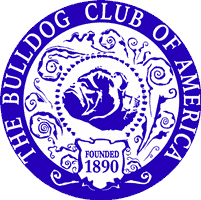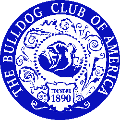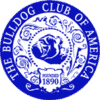Digestive System
The digestive system breaks down nutrients so your dog can absorb them, helps prevent toxins from entering general circulation and eliminates waste. Most digestive system diseases are reflected in familiar symptoms - diarrhea, gas, constipation, vomiting, poor appetite and weight loss. Although not illnesses themselves, they all indicate the possibility of an underlying problem. While treating the symptom will frequently eliminate the problem, you should be careful not to overlook a hidden problem.
This is one of the most common symptoms you will see. This makes it harder to know what is means. Occasional vomiting may be due to excitement, overeating, or digesting cold water quickly following a meal. Dogs who eat grass will also vomit. If you can see the cause, you don't need to worry. Vomiting once or twice in an otherwise healthy appearing dog is generally no cause for alarm. If your dog is vomiting and looks listless and sick or if he vomits blood, you should see your Vet.
Diarrhea is a symptom, not a disease. You must be sure to treat the underlying cause as well. Sometimes it's something simple like a change of food, other times it can be caused by an infection of the intestine. If he has loose, unformed stools for more than a day or two, especially if he appears listless or doesn't want to eat, be sure he sees a Vet quickly. It's not unusual to see a trace of bright red blood in the stool with diarrhea. If there is a lot of blood or if its dark red, or if he is vomiting or has a fever with the diarrhea, get the dog to a Vet immediately.
For non-serious cases, withhold food and water for 24 hours. Give him small amounts of ice cubes to eat if he seems thirsty. Keep Kaopectate on your medicine shelf. Use dosages appropriate for his weight as noted on the bottle. Dunk something he loves into the Kaopectate (small pieces of chicken) and feed him until he's had the entire dose. Repeat after every bowl movement until the stool is solid. His stool may change color until the medicine is out of his system. Pepto-Bismol also works for this and nausea. It turns the stool dark.
When you feed him, give him equal parts of cooked rice and chopped meat with the fat drained off, or cottage cheese and pasta, instead of his regular dog food until his stool is back to normal. Gradually mix dog food back into the meat/rice mixture until he's back on his normal feed. Prescription diets are available from your Vet. Check under his tail and keep the area scrupulously clean. Use Panalog if it's sore - as it almost certainly will be.
Constipation exhibits itself as the inability of the dog to pass stool. Most dogs have a stool one or two times a day - going for two days without one is not unusual. You should get to know your dog's routine so you can see if it changes. It can be caused by poor diet, eating indigestible substances and voluntary retention. Poor diet can be addressed through Milk of Magnesia or mineral oil as a laxative and feeding a high residue diet.
Eating indigestible substances can cause fecal impaction. The dog will pass watery or blood-tinged stool, forced around the blockage . Your Vet can give the dog an enema to expel the block. Surgery might be required if nothing else works.
Voluntary retention occurs when a dog refuses to have a stool. The dog seems to be "holding his breath" as humans do when a bathroom is not available. This is common when a dog is away from his home environment and the cues for acceptable locations are absent. A mild laxative, like mineral oil, can help lubricate the dry stool and ease passage. You should give your dog several chances a day to eliminate if you think this is the cause.
You couldn't write about Bulldog digestive problems without mentions passing gas. Diets high in fermentables (beans, cabbage, etc.), milk or meat can make the condition more likely. Bulldogs seem prone to it. It's something you learn to live with. You can try a course of antibiotic therapy followed by cultured yogurt or buttermilk for a while to create "good" bacteria in the intestine.
Gastritis is an inflammation of the stomach lining following its irritation. Its principle symptom is vomiting. Acute gastritis is accompanied by diarrhea, which should be treated as explained above. Chronic gastritis exhibits sporadic vomiting, loss of appetite, weight loss and lethargy. You should have your Vet determine if there is some illness which should be treated or whether a change to a special diet is required.
Bloat, or acute gastric dilation-torsion complex, is a life threatening illness. Luckily this is not frequently seen in Bulldogs. While acute gastric dilation can be treated at home, immediate response by a Vet is essential for torsion to keep your dog alive. He will have to relieve the gas or turn the stomach to permit normal digestion. Gastric dilation, and related torsion of the stomach usually, occurs in older animals and is caused by gas or fluid build-up. The symptoms are abdominal distension coupled with dry heaves - retching without being able to vomit.
Cleft palate, which is an opening in the oral and nasal cavity, is a birth defect in Bulldogs. It permits food and liquid to pass between the oral and nasal cavities. It is difficult for the puppy to create enough suction to nurse. Almost all puppies you see will not have this problem, since they will not have survived until that age. Those who do will usually have easily visible clefts. It can be surgically corrected if the dog can sustain itself. Once corrected, the dog can live a happy life as a pet.
Anal Sacs are scent glands located at the base of the tail under the skin. They normally empty into the very end of the rectum when the dog evacuates his bowels, marking his territory. They can get impacted or clogged. You can tell that your dog has impacted anal sacs, worms, or allergic dermatitis if he sits strangely on his rump and rocks back and forth or if he drags his rump on the ground. Clogged anal sacs are easily emptied by the Vet. It's easy to do and he can show you how if you're interested in doing it yourself (Most people are not).
Liver disease can be caused by many factors, including infection, bile duct obstructions, cancer, heartworms, and poisons. The symptoms vary, but usually include loss of appetite, loss of weight, nausea, and jaundice. Treatment by a Vet is essential and can require hospitalization.
It's possible to see some types of worms in the dog's stool. A dog with worms should be taken to the Vet for treatment since it's important to make sure you're treating the right kind of worms. The treatment and medication vary for different worms. The treatment of worms is generally easy and not messy. To eliminate the worms, you will give your dog pills according to a schedule the Vet will set. They are usually gone quickly. Puppies are sometimes born with worms, even when the mother was dewormed. This can occur since the dewormers are not effective against larvae encysted in the tissues. During pregnancy, the larvae may mature and migrate to the puppies in the uterus.
Roundworms are acquired through eating soil containing the eggs. Roundworms look like gray or whitish strands in feces. Potbellied puppies, not just healthy fat ones, may harbor worms. A stool sample should be checked by your Vet during the puppy's first visit since a severe infestation can lead to death. The larval forms of the worm travel throughout the body and can cause dehydration from vomiting and diarrhea. Since the worms can be transmitted infrequently to humans, caution is required.
Tapeworms look like grains of rice in the stool and dried segments looking like brown rice can be found around the tail or in areas which the dog sits. It is acquired by eating raw meat or fish or from swallowing infected fleas. Since the mature worm feeds in the intestine, your dog will eat large quantities of food without any weight gain. Mild diarrhea, weight loss and loss of appetite are the major symptoms. Be sure to clear up any flea problems associated with the dog as part of the tapeworm problem to prevent reinfestation.
Hookworms are contracted from the infected feces of other dogs or cats. They attach to the intestinal wall and take blood from the dog. Puppies can get them through the bitch's placenta or her milk when nursing. Puppies with severe cases require veterinary action. Microscopic examination of the feces is best to identify the presence of these parasites. A dog with hookworms is listless, has a black or bloody stool, with a poor appetite and unexplained weight loss. Severely infested dogs can die if not treated.


